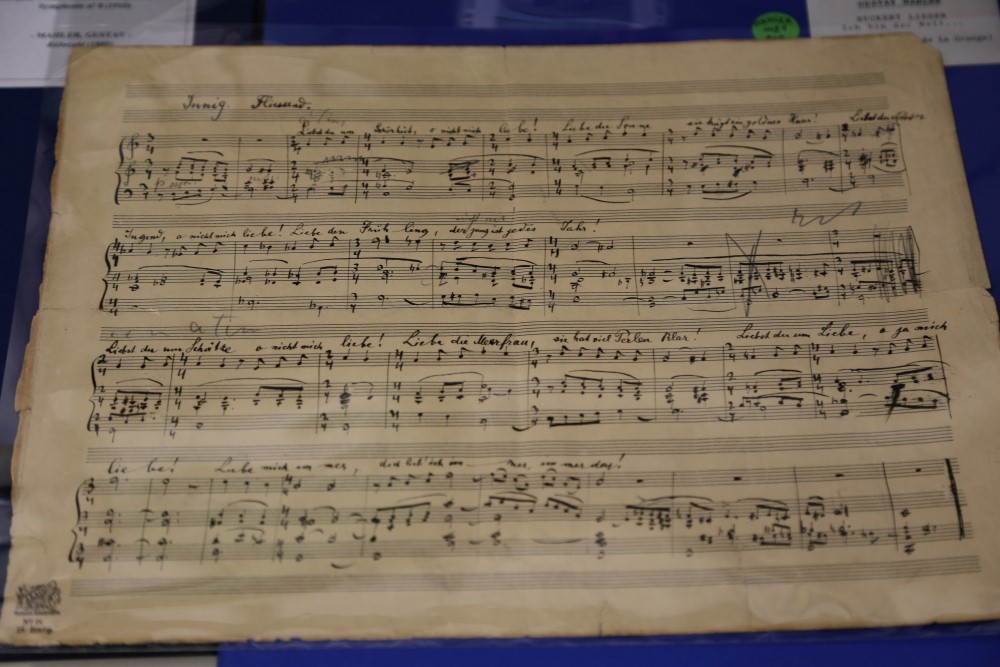The most traditional of the songs was the last composed, “Liebst du um Schönheit.” It is the most clearly strophic in form, with the four stanzas presented in pairs, with a very brief orchestral interlude in the middle. The first three stanzas are clear variants of one another.
The fourth begins as if it were to continue in the same pattern, but underscores the central message of the song by stressing the words “liebe” (love) and “immer” (always) through rhythmic prolongation and emphasis on the upper register in the melody. Love must be for its own sake, not for beauty, youth or treasure.
Lied Ruckert 5: Liebst du um Schoenheit.
In the summer of 1902, Alma suffered dramatically fluctuating emotions which she could not explain even to herself. “One moment I am overflowing with love for him – and the next moment I feel nothing, nothing!” Her state of mind, oscillating between depressive moods and moral self-accusation, stands in contrast to the cliché of the happy, indeed hopeful wife at the side of a fascinating artist. “And always these tears,” she laments in her diary. “I have never cried as much as now, when I have precisely everything a woman can strive for.”
Score Lied Ruckert 5: Liebst du um Schoenheit for orchestra.
Mahler too noticed that something was not right with his wife. He reacted in his own way, by composing a song for her. He designated his setting of the Rückert poem Liebst Du um Schönheit as “Privatissimum to you”. While Alma was delighted at this gift, the basic problem arising from her discontent with herself was not thereby resolved. “Often I feel how insignificant I am and how little I have compared with his immeasurable wealth!”
The song was completed a year later than the first four Ruckert songs, as a gift to his new bride, Alma Schindler. It is Mahler’s sole overt love song, and the only one of the Rückert-Lieder he never orchestrated – doubtless because of its intensely personal significance. When a plausibly Mahlerian orchestral version by the Leipzig musician-cum-critic Max Puttmann (1863-1935) appeared in 1916, Alma, predictably, protested.
The most traditional of the songs, “Liebst du um Schönheit” (If you love for beauty), was the last composed and was left unorchestrated by Mahler, but an orchestration by Max Puttmann, who worked for Mahler’s publisher, is frequently performed. Of the five, it is the most strophic in form, with the four stanzas presented in pairs, separated by a short orchestral interlude. The first three stanzas are closely related one another, while the fourth begins as if it were simply to repeat the pattern, but then underscores the message of the song by stressing and expanding the melody on the words “Liebe” (love) and “immer” (always).
Liebst du um Schoenheit
Liebst du um Schoenheit,
O nicht mich liebe!
Liebe die Sonne,
Sie traegt ein goldnes Haar!
Liebst du um Jugend,
O nicht mich liebe!
Liebe der Fruehling,
Der jung ist jedes Jahr!
Liebst du um Schaetze,
O nicht mich liebe!
Liebe die Meerfrau,
Sie hat viel Perlen klar!
Liebst du um Liebe,
O ja, mich liebe!
Liebe mich immer,
Dich lieb’ ich immerdar!
Listening Guide


